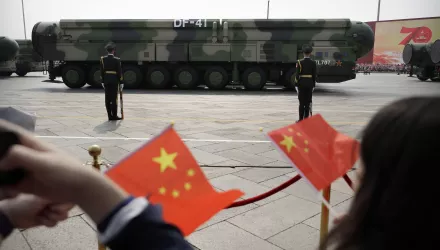International Security is America's leading peer-reviewed journal of security affairs.
Summary
Scholars have long argued about why the United States pursued a conventional military strategy during the Vietnam War rather than one based on counterinsurgency principles. A recent article in this journal by Jonathan Caverley presents a bold challenge to the historiography of the Vietnam War. Rejecting the standard historical focus on the organizational culture and strategic perspective of Gen. William Westmoreland and the U.S. Army, Caverley argues that the roots of the United States' strategy in Vietnam can be traced to the direct influence of civilian leaders and the strong constraint of public opinion. Caverley's main arguments are a welcome challenge to the established wisdom, but they are not supported by the historical evidence. Civilian officials in Lyndon Johnson's administration did not instruct the military on how to fight the ground war within the borders of South Vietnam. Westmoreland did not want to change U.S. military strategy to focus on pacification at the expense of search and destroy tactics and the main force war. Both U.S. civilian and military officials were convinced that counterinsurgency was a South Vietnamese responsibility that U.S. ground forces should not assume. Public opinion was a weak, rather than a strong, constraint on the specific decisions of the Johnson administration during the pivotal years of the Vietnam War. Democracies may not be able to win certain counterinsurgency conflicts, but the primary source of this failure is not a civilian aversion to casualties.
McAllister, James. “Who Lost Vietnam? Soldiers, Civilians, and U.S. Military Strategy.” Winter 2010/11
The full text of this publication is available in the link below.



